Main Menu
Sustainable management of natural resources is a critical priority for ecological resilience, food security, and the economic development of local territories. In this context, cooperatives and other local organizations are increasingly recognized as pivotal actors for fostering inclusive governance, promoting sustainable economic valorization, and mobilizing communities.
Deeply embedded in local realities, cooperatives facilitate equitable access to resources, enhance members’ technical capacities, improve the traceability of environmental practices, and open market opportunities for products derived from responsible resource management. Moreover, they empower communities—particularly women and youth—to actively participate in planning, monitoring, and managing natural resources, thereby becoming agents of change.
This panel will showcase best practices, identify challenges, and explore future opportunities related to the engagement of cooperatives in the sustainable management of natural resources, including forests, mangroves, water, soils, and biodiversity. By bringing together representatives from cooperatives, institutional stakeholders, researchers, and technical partners, the discussion will examine how these organizations can serve as catalysts for innovation, local governance, and sustainability.
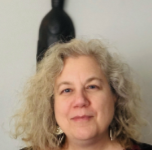
Renée Brunelle brings over 25 years of experience in environmental management and international cooperation. She has worked as an environmental advisor, consultant, project manager, and researcher specializing in environmental education.
SOCODEVI, as a practice leader and expert environmental advisor, she contributes to developing environmental management tools and capacity-building programs. She also supports the formulation and implementation of environmental strategies across a range of international cooperation projects, particularly those focused on nature-based solutions, climate change adaptation, and climate action linked to cooperative activities and their members.
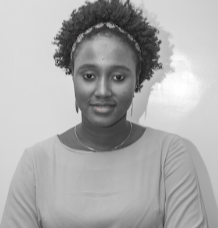
Mariama Diallo is a Senegalese socio-anthropologist specializing in conservation policies, local development, and governance. She serves as the Project Coordinator for NEBEDAY, a Senegalese organization dedicated to participatory natural resource management and environmental protection. Dr. Diallo is deeply committed to valuing local knowledge, co-creating nature-based solutions, and promoting equitable governance of natural resources.
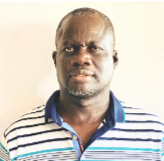
Abdou Karim Sall is a passionate advocate for environmental protection and sustainable fishing in Senegal. As President of the AGIRE Association, he has dedicated over ten years to preserving coastal ecosystems, particularly in the Joal-Fadiouth region, where he also leads the Management Committee of the Marine Protected Area (MPA). A specialist in mangrove reforestation, he has spearheaded extensive campaigns to plant Rhizophora and Avicennia species, actively engaging local communities, youth, and partners.
Since 2004, he has coordinated with Dakar’s Oceanium and various organizations—including Wetlands International Africa, WWF, and Danone—the restoration of more than 6,000 hectares of degraded mangroves. His commitment strengthens coastal resilience, restores biodiversity, and supports local populations. Since 2020, he has served on the Board of Directors of RAMPAO. A proponent of an integrated approach combining ecology and community development, Abdou Karim Sall is a leading figure in mangrove conservation across West Africa.
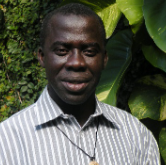
Salatou Sambou is a fisherman from Casamance. He is the former president of the Association of Fishermen of the Rural Community of Mangagoulack (APCRM) and, together with his entire community, founded APAC Kawawana—the first community- managed protected area in Senegal to be officially recognized by regional authorities in 2010. He currently serves as Coordinator of the APAC Consortium for West Africa.
Salatou is regularly invited to international conferences and meetings to share his experience. He also participates as a trainer in workshops on co-governance of marine and coastal conservation areas in West Africa. Since November 2008, he has coordinated the APAC Consortium, overseeing the marine and coastal zone from Mauritania to Guinea. He has been deeply committed to natural resource conservation since 2006.
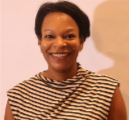
Frédérique Thomas holds a degree in Finance and International Economics from HEC Montréal, a Master’s in Management and International Development from the University of Sherbrooke, and later earned her CPA designation.
She gained experience in consulting and financial management within private sector companies before joining the NGO sector in 2011. Passionate about economic empowerment as a key part of promoting social inclusion for vulnerable and marginalized groups—especially women—Frédérique has played a central role in advancing this focus, including sexual justice, within the programs of Mission Inclusion, a Quebec-based NGO.
Since February 2021, she has been serving as Country Director of SOCODEVI in Senegal. In this role, she oversees multiple programs funded by Global Affairs Canada and the Quebec Ministry of International Relations and La Francophonie, including Natur’ELLES—a CAD 20 million project dedicated to the protection and conservation of mangroves, inclusive governance of natural resources, and the economic empowerment of vulnerable populations living in mangrove ecosystems.